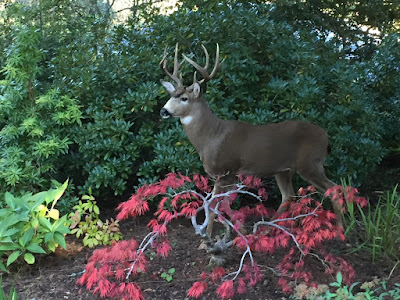My Last Blog Post: "Stepping on the Train"
In March 2020 I began sending a daily e-mail to family and friends. My goal was to lift spirits and provide both a bit of respite and some self care resources during the pandemic lockdown. I had no idea that it would be more than a year before vaccines would make it possible for us to start to venture back out into the world again. Eventually, I moved the e-mails to this blog, and after George Floyd's murder I shifted my focus from daily messages to occasional posts about systemic racism, White supremacy, and White privilege. I hoped that sharing some of my journey as a person of White privilege would encourage others who, like me, felt called to learn more about these evils and do more to reckon with our own complicity in them. Today is the first anniversary of George Floyd's death. As we mark this awful milestone, I am grateful that his killer has been tried, and that he was convicted on all counts. His attorneys have filed a motion for a new trial, and will no doubt appe...

